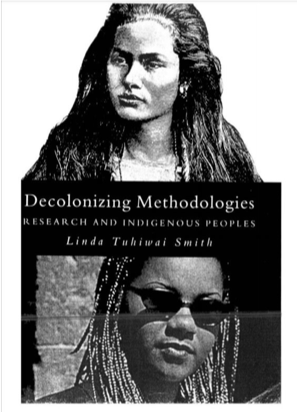Greetings! We are Kathleen Doll and Jennifer Villalobos (doctoral students at Claremont Graduate University (CGU)),
led by Leslie Fierro (Evaluation
Professor at CGU).
In Winter 2018 we launched the “Educating Socially Responsive Evaluators
Project” with our colleagues at the Community Engagement Center (CEC) at
Pitzer
College, one of the five undergraduate
institutions within the Claremont College Consortium.Through this innovative academic
program, graduate and undergraduate students co-create a living laboratory to
share our respective skills and expertise related to evaluation (via CGU
students) and socially just community engagement practices (via Pitzer
students). Knowledge is shared primarily via student-facilitated workshops that
are open to the entire Claremont College community. Additionally, there is a
hands-on evaluation practicum component, in which we are jointly execute an
evaluation for the CEC and create a
strategic evaluation plan for the CEC that outlines how they can elevate their
capacity to continue the evaluation work after the project ends.
This project has challenged us to expand CEC’s understanding of what
constitutes high quality evaluation instruction and has provided us with tools
to ensure we are upholding the latest AEA Competencies, especially those that
target culturally responsive and social justice-oriented evaluation.
Rad Resources: Decolonizing
Methodologies

During one of our collaborative
workshops, Pitzer students confronted our largely positivist training by
introducing us to Decolonizing
Methodologies by Linda Tuhiwai Smith, urging us to question the role of
evaluation in perpetuating post-colonialism and institutionalized truth. Check
out this free
pdf version of the book.
Specifically, this text has inspired us to co-create evaluation questions that
explore the reciprocity of the relationships between the CEC and their
community partners (e.g., local tribal leaders, community based organizations,
nonprofits). We are moving past the typical surveys and archival data to better
honor the lived realities of these community partners.
Hot Tip: Reflect, Reflect, Reflect!
At times, the workshops can get uncomfortable. However,
this tension is an important part of our learning, unlearning, and relearning
as evaluators. To enrich this learning process, we’ve leveraged formal reflective
practice exercises, creating a space to think critically about the quality of
our evaluation instruction, develop joint scholarship, and create best
practices moving forward. Through this self and group reflection, we grapple with
our experiences and highlight the tangible implications of the lessons learned.
We are still in the first year of this project, and we still have loads to
learn! Stay tuned for future reflections, more comprehensive lessons learned,
and rad resources. Plus, we’d love to hear from you! Please reach out with your
favorite tips and tricks for how we can most effectively educate the next
generation of socially responsive evaluators! Find us at kathleen.doll@cgu.edu or leslie.fierro@cgu.edu.
The American Evaluation Association is celebrating TOE TIG Week with our colleagues in the Teaching of Evaluation Topical Interest Group. The contributions all this week to aea365 come from our TOE TIG members. Do you have questions, concerns, kudos, or content to extend this aea365 contribution? Please add them in the comments section for this post on the aea365 webpage so that we may enrich our community of practice. Would you like to submit an aea365 Tip? Please send a note of interest to aea365@eval.org. aea365 is sponsored by the American Evaluation Association and provides a Tip-a-Day by and for evaluators.
